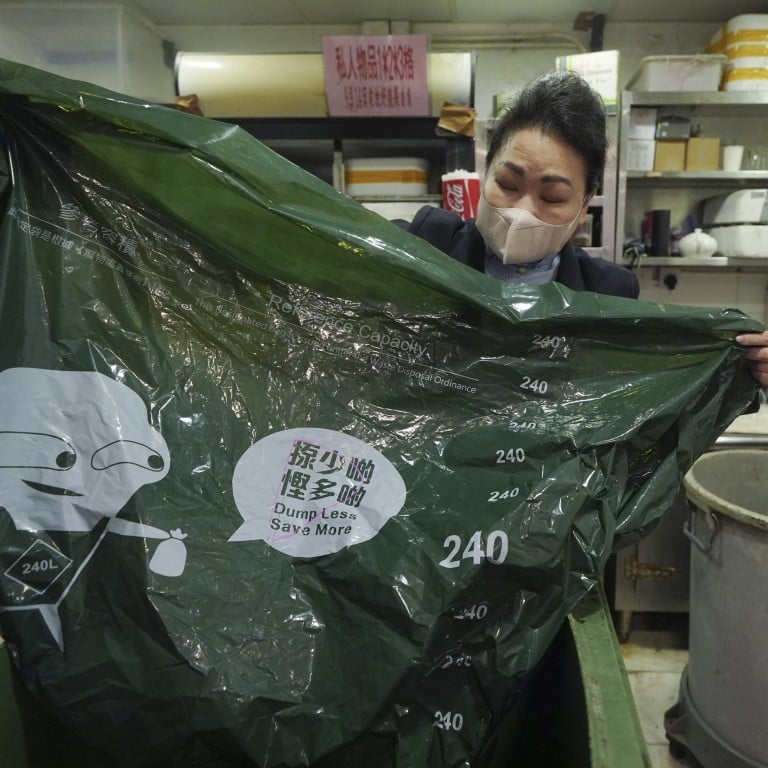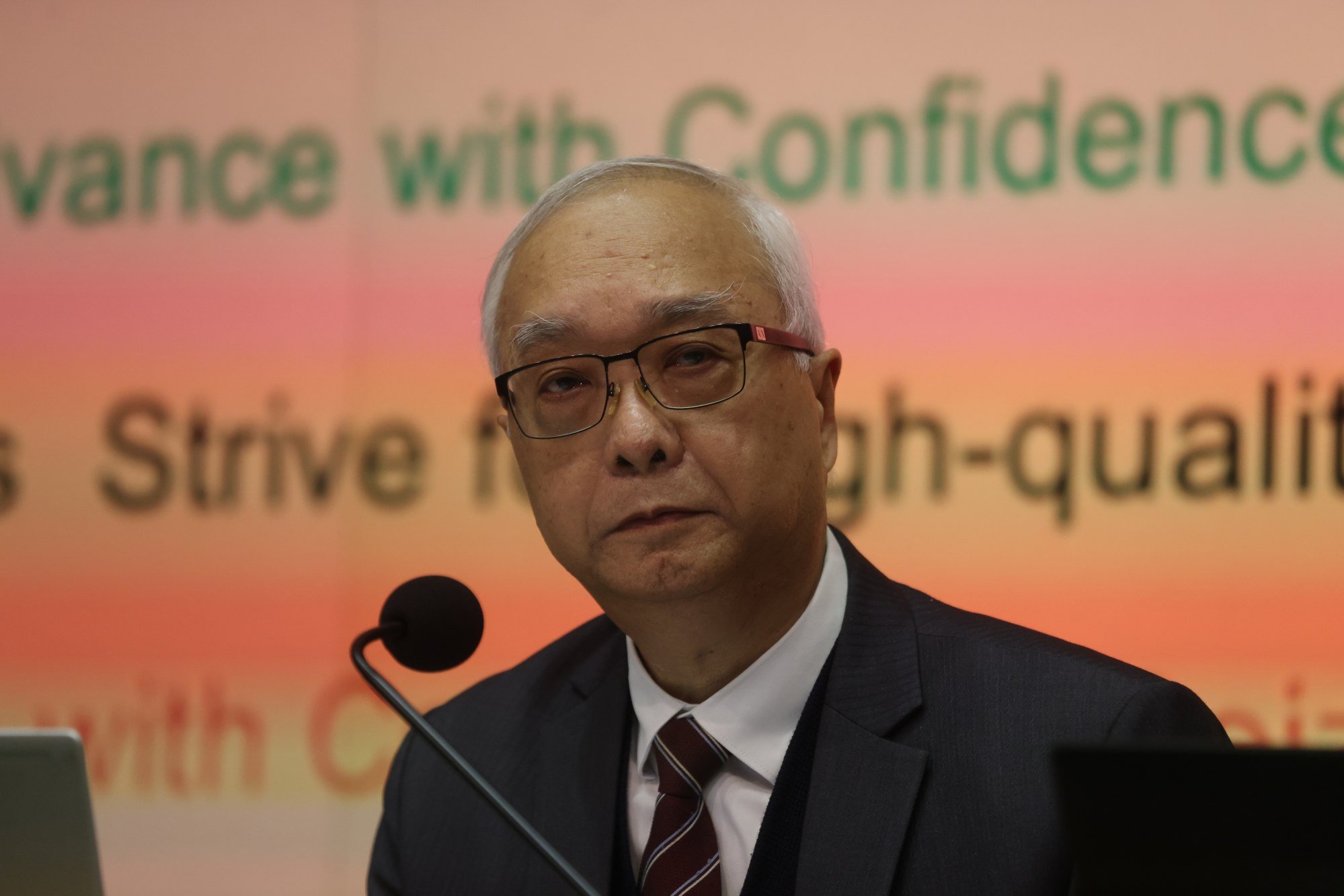
Hong Kong halt on production of bags for waste-charging scheme sparks calls for introduction to be delayed ‘for at least a year’
- News sparks calls from city’s biggest party for yet another delay to the scheme’s large-scale introduction
- But other politicians warn that further hold-ups will cause Hong Kong to lag even further behind many other cities in meeting environmental targets
The news sparked a fresh call on Friday from the city’s largest political party, the Democratic Alliance for the Betterment and Progress of Hong Kong (DAB), to postpone the controversial programme for “at least a year” to allow for enough recycling facilities to be set up around the city.
But a lawmaker from the New People’s Party said more delays to the scheme’s implementation – already under discussion for more than a decade – would cause Hong Kong to lag even further behind many other major cities in meeting carbon reduction targets.
The implementation date for municipal solid waste charging was pushed back from April to August.

A source familiar with the programme said several suppliers of the government-approved rubbish bags with designated labels had been told by environmental authorities to suspend production in the meantime.
The news reignited speculation that the government was paving the way for a further delay to the controversial scheme, which was designed to provide incentives for the public to become more aware of waste-disposal volumes by requiring them to buy special bags produced in a variety of sizes.
The Environmental Protection Department confirmed to the Post that suppliers “did not need to produce additional designated bags for the time being” after they built up a stock of bags sufficient for two months.
The department emphasised that the stockpile could meet the needs “before and after implementation” of the scheme, but did not say whether it would be further delayed.
“Since the implementation of garbage charging has been postponed to August 1, suppliers do not need to produce additional designated bags for the time being to meet the demand before and after implementation,” the department added.
A one-month trial scheme, scheduled to end in days, is under way to examine problems facing households, cleaning staff and waste collectors at 14 premises.
Government officials have scheduled a meeting with the Legislative Council’s environmental affairs panel to deliver a review of the trial scheme on May 27.
70% of Hongkongers not confident over waste-charging scheme roll-out: survey
DAB lawmaker Edward Lau Kwok-fun, chairman of Legco’s environment panel, said the government should further implement the citywide scheme “at least a year” later and “in phases”.
“Residents in rural areas and public estates have been complaining to us about insufficient recycling facilities,” he said. “Postponing it for at least a year could buy time for the government to review the whole strategy.
“And the government should also learn from the recent ban on throwaway plastic tableware, which is being rolled out in phases.
“Would it be possible to charge private enterprises for trash bags first, followed by the public sector and finally households?”
Lau’s call echoed the views of Beijing loyalist heavyweights Henry Tang Ying-yen and Lo Man-tuen, who said the scheme was “mission impossible”.
Panel member Kwok Wai-keung of the Hong Kong Federation of Trade Unions said his party met environment secretary Tse Chin-wan on Friday morning to pass on the views of members of the public who took part in the trial run.
He added Tse did not reveal the government’s stance on the policy in the closed-door meeting.
But Kwok said Tse had told the trade unionists that environment officials had admitted there were problems with the number of food waste recycling facilities and had pledged to improve.
“Problems won’t go away simply by postponing the scheme,” Kwok said. “None of us can evade the mutual goal of lowering the waste disposal rate.”
Kwok called for patience to give the government time to review the effectiveness of the trial run next month.
Government statistics showed the disposal rate for municipal solid waste was 1.51kg per person a day in 2022, discounting the population growth factor.
‘More packaging regulation needed ahead of Hong Kong waste-charging scheme’
Food waste accounted for about 30 per cent of the 11,128 tonnes (12,267 tons) of solid landfill produced each day that year.
Plastics, which made up 21 per cent, was the second largest contributor.
But lawmaker Judy Chan Kapui of the New People’s Party said she was worried the suspension of production of the special bags would create confusion among the public.
“Many residents and management companies have been preparing for this initiative,” she said. “If the government is making a U-turn, officials should promptly explain the reasons to prevent unwarranted speculation.
“But officials should ask themselves if there is a realistic date for Hong Kong to get ready for the scheme.
“Places like Taiwan and South Korea took years to streamline relevant schemes before influencing behavioural change.”
She said more delays would put Hong Kong further behind many other metropolitan areas in meeting environmental targets.
The government’s aim is to achieve carbon neutrality before 2050 and cut carbon emissions by half before 2035, compared with the 2005 level.

